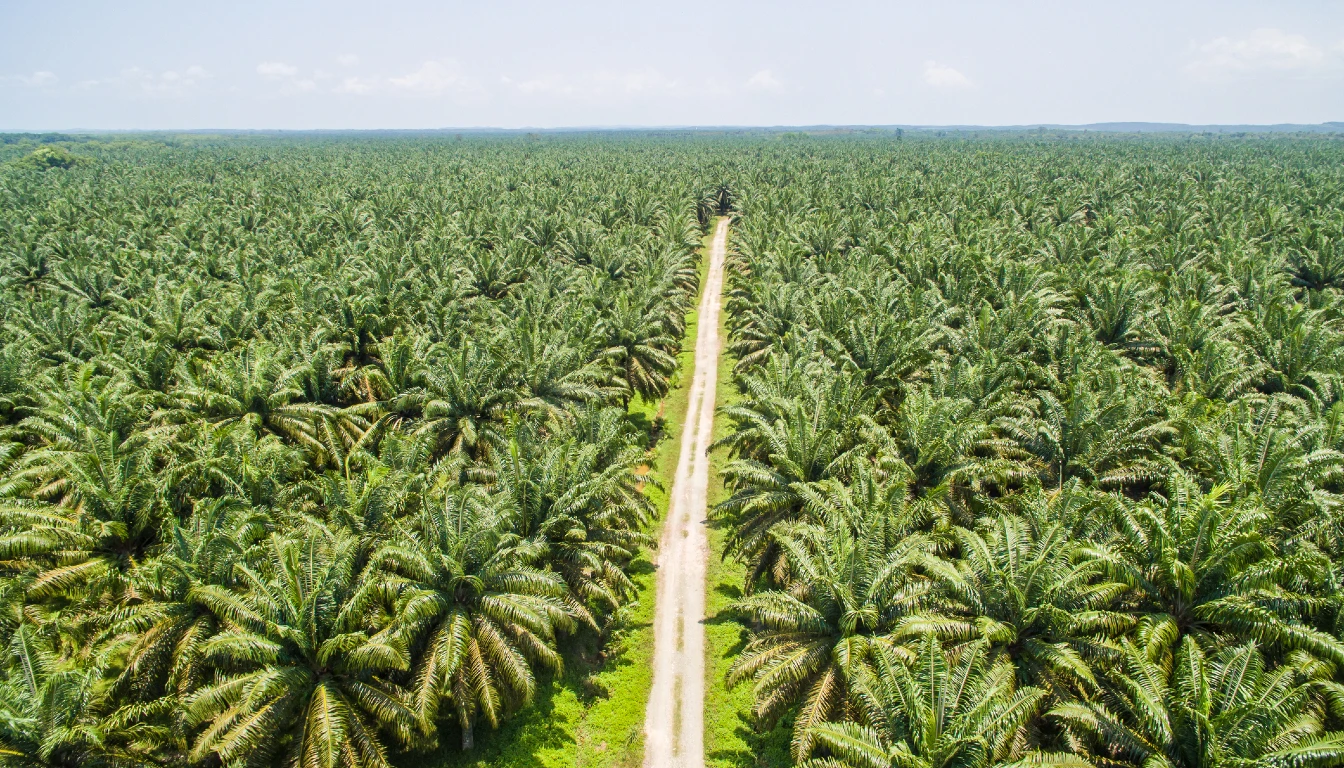Daabon UK, part of the global agriculture company Daabon Group, has recently announced the launch of the world’s first carbon-neutral organic palm oil. This groundbreaking development comes as many palm oil producers are striving to comply with the European Union Deforestation Regulation (EUDR), which aims to curb deforestation linked to palm oil production.
Daabon’s carbon-neutral palm oil achieved a life cycle assessment (LCA) calculated CO2 equivalent of -977kg per tonne, from cradle to gate. This figure significantly surpasses the average carbon footprint of conventional and certified sustainable palm oils, marking it as a good choice for buyers focused on sustainability and reducing their Scope 3 carbon emissions. Scope 3 emissions include all indirect emissions that occur in a company’s value chain. Given that palm oil is included in huge numbers of food and FMCG products, this could be very good news.
The carbon-neutral organic palm oil is produced at Daabon’s CI Tequendama SAS mill located in the northern region of Colombia. The life cycle assessment was executed using Ecopalma’s carbon footprint estimation tool, which adheres to the ISO 14067 standard, ensuring a reliable and standardised measurement of carbon emissions.
Globally, the average carbon footprint for conventional palm oil is approximately +5,340kg CO2 eq per tonne. In contrast, RSPO-certified sustainable segregated palm oil has an average carbon footprint of +3,410kg per tonne, and even the best-in-class RSPO-certified sustainable palm oil stands at +1,470kg per tonne. Daabon’s average across its two mills is considerably lower at +150kg per tonne, highlighting its commitment to reducing carbon emissions.
The palm oil sector has been strong-armed into making progress in sustainability. Public pressure on brands has increased substantially and producers have responded with principles of voluntary certification schemes such as the Roundtable on Sustainable Palm Oil (RSPO). Impending regulations like the EUDR ratchet up the pressure even further. The introduction of carbon-neutral palm oil by Daabon is seen as a significant advancement in this ongoing endeavour.
Manuel Davila, Managing Director of Daabon UK and EU, expressed enthusiasm about this milestone, stating, “We’re delighted to have achieved this milestone. We genuinely believe that Daabon carbon-neutral palm oil sets the gold standard for sustainability worldwide.” He further elaborated on the company’s future plans, which include replicating this achievement at other refineries with the ultimate goal of producing carbon-negative and climate-positive palm oil.
Daabon UK is focusing heavily on sustainability, offering palm oil that is fully traceable to its farm origins, and ensuring compliance with organic and sustainable certification standards as well as upcoming EUDR requirements. The company holds numerous sustainability accreditations such as RSPO, Fair Trade, Regenerative Organic Certification, Organic Certification, and Non-GMO Project verification.
If these results can be scaled, it will a remarkable achievement for this crop that has been seen so negatively for so long.




